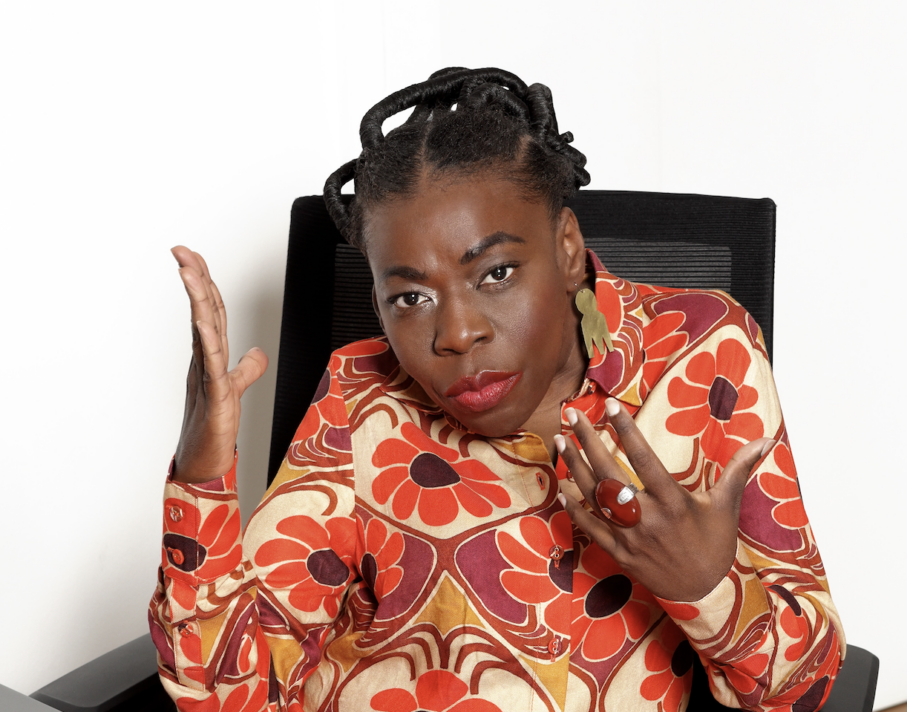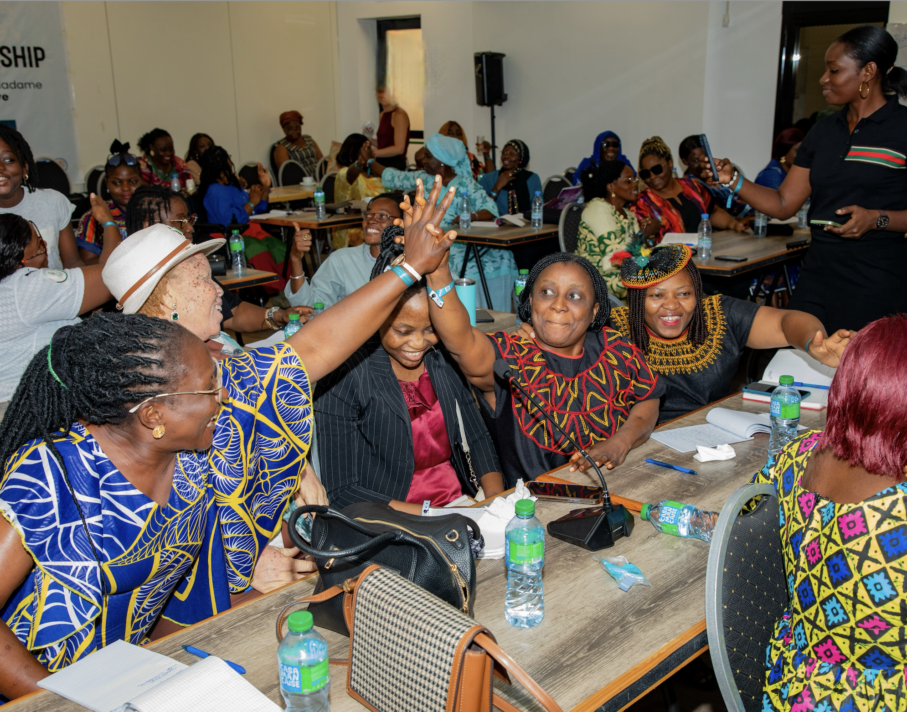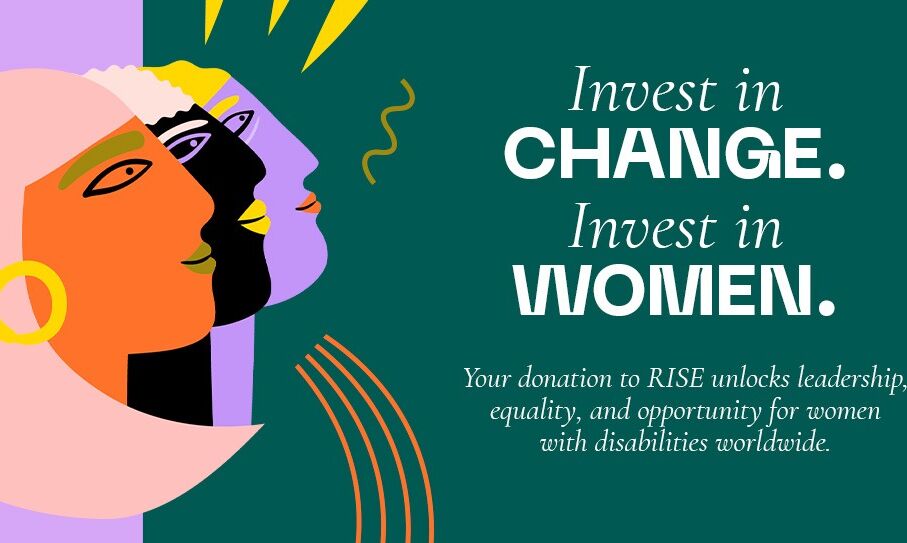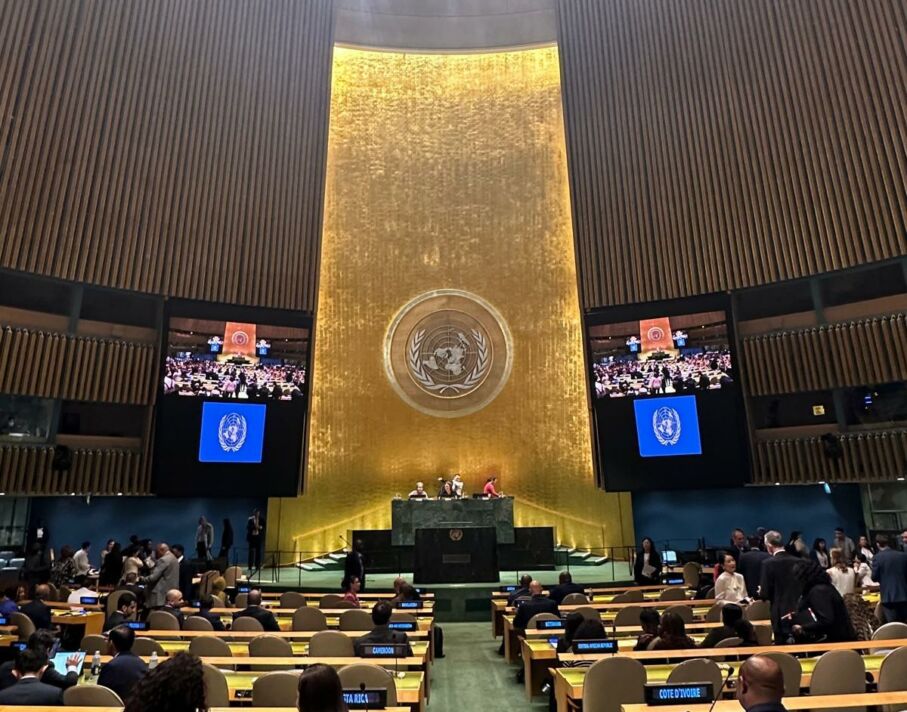Economic Empowerment of Women with Disabilities
As the World Economic Forum begins, 30 women with disabilities participating in the AHADI Foundation’s leadership program—hailing from Europe and Africa—join their voices with Deza Nguembock to issue an urgent call: stop turning a blind eye to the economic struggles of women with disabilities.
The World Economic Forum is a key platform for addressing global challenges and shaping future economic pathways. Yet, the extreme poverty of women with disabilities and their economic empowerment remain largely overlooked. About 20% of women worldwide live with disabilities, and ignoring this injustice denies millions of women a future that is fair and dignified.
We denounce the intersection of discrimination that exacerbates economic inequalities, depriving women with disabilities of their right to a decent income, savings, property, and an equitable life. This stands as a major barrier to social justice and inclusive economic growth.
A Double Burden: Poverty and disability
While 10% of women worldwide live below the poverty line, women with disabilities are even more vulnerable—particularly in economic terms. They are marginalized by both gender inequalities and disability-related barriers, making them more exposed to precarious living conditions. In many regions, they are excluded from the labor market, have limited access to education, and suffer from social isolation. As a result, they are significantly more likely to face poverty than non-disabled women.
The statistics are stark: women with disabilities are twice as likely to live in poverty. In 2022, the employment gap between people with disabilities and others was 21.4% within the EU. In Africa, only 20% of women with disabilities are employed, compared to 53% of disabled men. Those who do work often hold precarious, low-skilled jobs. In France, 47% of women with disabilities are in this situation. Most live on insufficient income, often below the poverty line, further worsening their vulnerability. Inadequate public policies, persistent prejudices, and systemic discrimination trap these women in a vicious cycle of exclusion.
Economic Empowerment: A key to breaking the cycle of poverty
Breaking this cycle of marginalization is essential to ensure the economic empowerment of women with disabilities. This is not only a matter of social justice but also a crucial driver for global prosperity. When a woman with a disability gains access to stable employment, she transforms her own life and contributes to the economic growth of her community, her country, and the world.
However, many barriers persist, as highlighted by participants in our program: persistent stereotypes, inaccessible workplaces, discrimination, inadequate training, lack of support for entrepreneurship, and difficulties in accessing credit. Without concerted political action to remove these barriers, the economic empowerment of women with disabilities will remain an illusion.
A Global Call to Action: A decisive commitment to economic inclusion
The economic empowerment of women with disabilities must be a global priority—essential for both their dignity and the planet’s sustainable economic future. This challenge is inseparable from the broader global goals of gender equality and poverty reduction.
As the Forum focuses on the jobs of tomorrow, it is urgent to include these women—not only to uphold their rights but also to unlock their potential and boost the global economy. Failing to leverage the potential of approximately 300 million women with disabilities represents a colossal loss. Their inclusion would drive innovation, expand markets, address skills shortages, and strengthen inclusive policies.
For a truly fair and transformative economic shift, we call on governments and international stakeholders to:
- Adopt an Intersectional Approach: Implement public policies that consider the specific challenges faced by women with disabilities, especially within diverse cultural, ethnic, and socio-economic contexts.
- Strengthen Financial Capacity: Establish a global fund for the economic inclusion of women with disabilities, financed by governments, international institutions, and private companies, to facilitate access to financing and dedicated microcredits.
- Ensure Universal Accessibility: Integrate accessibility standards into all urban and rural development projects, and guarantee the accessibility of educational institutions, workplaces, and transportation systems to promote the employment of women with disabilities.
- Promote Digital Inclusion: Launch large-scale training programs in accessible digital technologies to enable women with disabilities to seize opportunities in the digital economy and future job markets on equal footing.
- Support Leadership Diversity: Implement policies that guarantee access for women with disabilities to leadership roles in the public, private, and international sectors. Create leadership scholarships and develop dedicated mentoring networks to increase their presence and influence in decision-making spaces.
Conclusion: A collective responsibility for an Inclusive future
We call on governments and international actors at the World Economic Forum to guarantee women with disabilities access to economic opportunities by dismantling systemic barriers and enabling their active participation in decision-making spaces. We demand the inclusion of disability representatives on Forum committees and the integration of this crucial issue into the 2026 agenda.
A truly just and prosperous society can only be achieved when women with disabilities have the opportunity to fully realize their potential. It is our collective responsibility to remove barriers and give every woman with a disability the chance to shape her own future.
Let us remember that by ratifying the United Nations Convention on the Rights of Persons with Disabilities (UNCRPD), states have committed to promoting equal opportunities and ensuring the full and effective inclusion of people with disabilities in society. It is time to fulfill these commitments and turn these rights into a reality for all.
Deza Nguembock
Ambassador for the Together for Rights Campaign of the European Commission
Founder and Volunteer President of the AHADI Foundation
Co-signature:
- ABBA Sabanatou, Executive Board Member of the Association of Disabled People and Parents of Disabled People in Maroua, Cameroon.
- AISSATOU Hamadjam, Municipal Contractual Worker, Social Action and Cultural Service at the Urban Community of Garoua, Cameroon.
- BA Ly Khadidiatou, President of the Women's Committee of the Senegalese Federation of Associations of Persons with Disabilities (CF/FSAPH), Senegal.
- BANGOUB Hélène Cécile, Copywriter and Content Manager at MWDDB Congo & Secretary General of the Initiative of Deaf Youth for Self-Development in Cameroon (IJSA-CMR), Republic of Congo.
- DIOP Issa Tall, Director of Albert Royer Children's Hospital in Dakar, Senegal.
- DIOUM Fatou Thérèse, President of the National Solidarity Group for the Deaf (RNSS), Senegal.
- DJOUOGO Caroline Laure, Peer Educator on HIV/AIDS, Cameroon.
- FAURE Wahiba, Founder and President of Waka Conseil & Board Member and Volunteer of the Association "Femmes Sourdes Citoyennes et Solidaires," France.
- GUEYE Fatoumata, Social Worker Specialized in Training and Reintegration of Persons with Disabilities, Senegal.
- HADDOUZI Ismaëlle, Founder & CEO of e-Peak People HR, France.
- HOUSSOU Élodie, General Director of Fashola Prestations, Benin.
- KEAFOON Emelian, Production Director at Silence Breakers Academy and President of the Association of Women and Girls in Deaf Culture, Cameroon.
- KEITA Bintou, Manager of a Business, Guinea.
- KOPOKA Margaret, Expert in Disability Sociology, Advisor for Supporting Individuals with Specific Needs, and Local Councilor in Charge of Inclusion and Accessibility, France.
- LLORCA Justine, Accessibility and Cultural Inclusion Advisor, France.
- MAZARS Tiffany, Speaker on Invisible Disabilities and Inclusion, France.
- MABEL Chenko, CEO of Mabel's Oil Enterprise, Cameroon.
- MANTRAN Murielle, Manager of the Geomatik Karaïb Company and President of the Association "Handi'News 971," France.
- MINE-GARROS Clara, CEO of Mouv’Intelligent, France.
- NDIAYE Seynabou, President of the Support Association for the Visually Impaired (AHAVI), Treasurer General of the Women's Committee of the Senegalese Federation of Associations of Persons with Disabilities (CF/FSAPH), and Deputy Secretary General of the Senegalese Federation of Associations of Persons with Disabilities (FSAPH), Senegal.
- NEMEKON Alix, President of the Association of Persons with Disabilities PARVI, Cameroon.
- NGASSA KIMEN Leocadie Flore, Doctoral Candidate in Public Health at the Catholic University of Central Africa, Field Epidemiologist, and Head of the Office for Management of Metabolic Diseases, Cancers, Cardiovascular Diseases, and Chronic Kidney Diseases in the Sub-Directorate for the Fight Against Non-Communicable Chronic Diseases (DLMEP) at the Ministry of Public Health, Cameroon.
- NGUINI Simone, Office Agent at the Regional Delegation for Basic Education of Central Cameroon and Member of the Inclusive Society Platform for Persons with Disabilities, Cameroon.
- NIANG-ALIX Déguéne, Project Manager at APF France Handicap, France.
- NINGAYO Fébo Eugénie, President of Women Victims of Polio and Secretary General of the Chadian National Paralympic Committee, Chad.
- NYIRAMANA Joyce, Project Officer at the Rwanda National Union of the Deaf, Rwanda.
- SMAALAND Jessica, Chairperson of FQ – Forum Women and Disabilities, Sweden.
- TOBOSSOU Jules Dérick, President of the NGO "Eveil des Pensées Positives pour des Actions de Développement" (EPPAD), Benin.
- TUNGARAZA Stella, Independent Microfinance Consultant, Tanzania.
- UMUHOZA Djanathi, Project Manager and Sign Language Coordinator at the Rwanda National Union of the Deaf (RNUD), Rwanda.
- VUCHE AKUMBOM Benedicta, Subdivisional Chairperson for Persons with Disabilities within the Coordinating Unit of Associations of Persons with Disabilities (CUAPWD), Cameroon.



